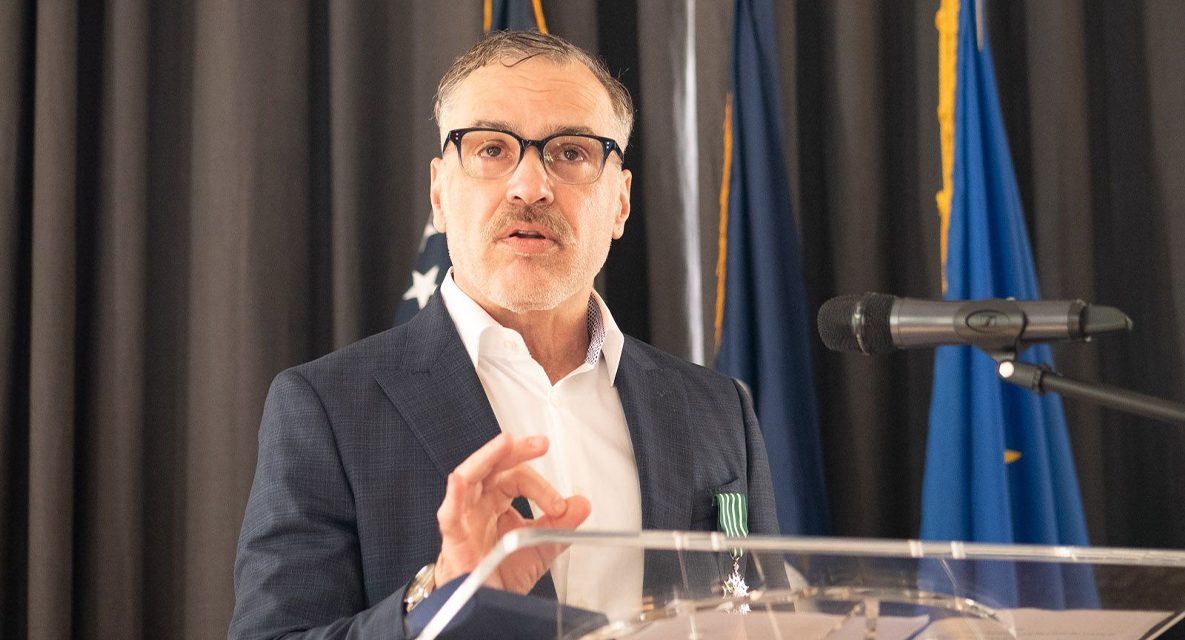David A. Gerstner, Professor of Cinema Studies in CSI’s Department of Media Culture and member of the Doctoral Faculty in the Film Studies Certificate Program/Department of Theater at The Graduate Center/CUNY, has just received the Order of Arts and Letters (Chevalier l’ordre des arts et des lettres) from the French Ministry of Culture.
Commenting on his receipt of the award, Gerstner said, “The Order of Arts and Letters was established in 1957 when André Malraux served as Minister of Culture. Its purpose is ‘to recognize eminent artists and writers, as well as people who have contributed significantly to furthering the arts in France and throughout the world.’ I am deeply honored, therefore, to be recognized by the Minister of Culture in France for these reasons.”
How did he become interested in France, its culture, and its cinema? “For me,” Gerstner explained, “France begins with cinema. Historically speaking, this is empirically true. In the 19th Century, Louis le Prince, Étienne-Jules Marey, and the Lumière Brothers were the first and critical players in the development of cinematic technology. But France begins with cinema, also, because early on, French filmmakers and critics reflected on the implications of cinema, aesthetically, culturally, politically, and so on. André Bazin famously asked, ‘What is cinema?’ The overwhelming response has been: It’s complicated. In short, French cinema piqued my intellectual curiosity because the question—What is cinema?—opens us not only to concerns about an art form as such; moreover, French cinema invites us to consider our lived experiences in relation to art . . .and cinema specifically.”
Gerstner has certainly been active throughout his career to promote French cinema from interviewing French filmmakers while they were in New York City to promote screenings of their films at Lincoln Center to organizing visits to CSI by French cinema students (one of which recently concluded), as well as visits to France by budding CSI filmmakers. He notes that scholarship and teaching are critical to his contributions.
Pointing to the significance of longstanding Transatlantic creative and intellectual collaborations between France and the U.S., Gerstner noted that these have fostered a deep friendship between the two countries. “In truth, the most important cultural exchange is that which involves students. It is they who carry their cultures back and forth. It is they who are most generous with their enthusiasm for discovery, and their willingness to share and to learn with others. To this end, I am most proud of the film programs I lead that brings American students to France and the French students who, in turn, come to the United States.”
By Terry Mares




![[video] Meet Evelyn Okeke – 2013 Co-Valedictorian](https://csitoday.com/wp-content/uploads/2013/05/Evelyn-Okeke-2013-Valedictorian.jpg)











